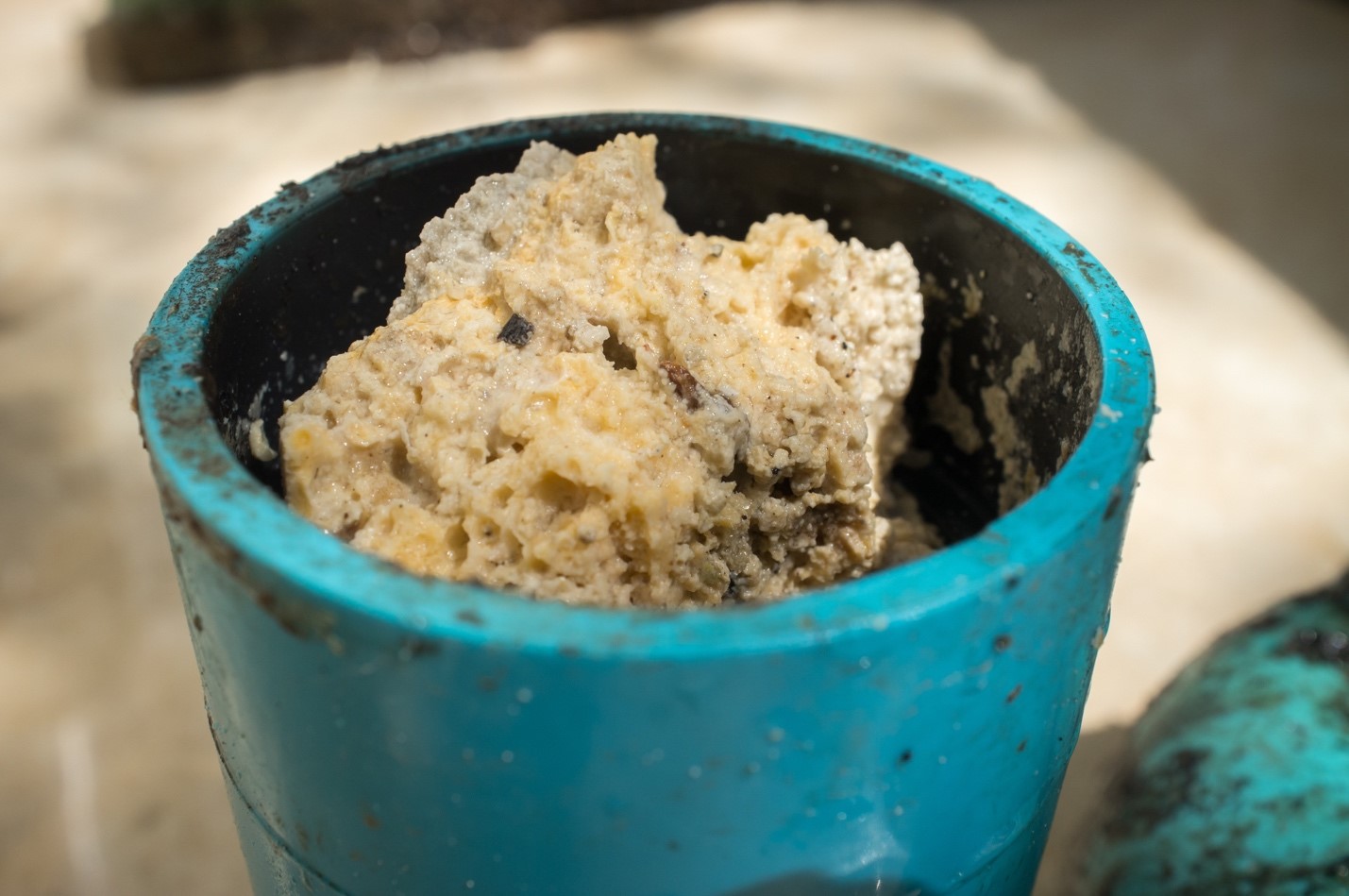No. Used cooking oil and grease should never be poured down the drain or toilet. When grease is poured down a drain it solidifies and hardens within the pipes. As this builds up it can cause blockages which will require expensive plumbing repairs within your home. Even small amounts of grease left on cooking utensils and pans can contribute to build up, and blockages.
Not only do blockages occur within your own home, but they can also occur within the sewer system causing a burden on the distribution system. In order to keep the sewage moving it requires costly removal fees every year from the taxpayers within the district. By doing your part to keep grease out of the drains we can reduce those costs.
Another common mistake is to dump used grease on the lawn or garden. If you used this oil to fry fish, beef, or poultry it can attract unwanted animals into your yard like raccoons, rats, and mice.
If you can’t dump used grease down the drain or in your garden, then how do you properly remove oil from your home? Learn more below on different methods you can use to ensure your pipes remain clean and your yard remains critter-free.
How to Properly Dispose of Oil and Grease
Used cooking oil can be reused, recycled, or disposed of properly. Determine which option below is best for your home, and ensure your pipes will remain clog-free from solidified grease.
Reuse
Cooking oil can be used 2-3 times before it needs to be discarded or recycled. Follow the steps below to properly store used grease.
- Allow oil and grease to cool down after use.
- Once cool, carefully transfer it into a glass container. A pro tip is to use a strainer or cheesecloth to separate any remaining food bits. If you do use a strainer be sure to wipe out excess traces of oil before washing in the sink or dishwasher.
- Seal the container tightly and label the lid with the contents and date.
- Safely store the container in a cool, dark place like a pantry or kitchen shelf.
Before reusing your stored grease be sure to know the signs of bad cooking oil. The stored grease does not have infinite reuses and will spoil after time. One sign can be an off-putting smell, so be sure to give the grease the ‘sniff’ test before use. Other signs include the color and appearance as well as the texture.
Recycle
Used cooking grease and oil can be recycled at certain recycling centers and facilities. Know a restaurant owner? They may also allow you to dispose of grease in their traps that are collected by bio-diesel collection companies. Below are a couple of places in the Houston area that accept grease from homeowners and renters.
- Houston Biodiesel
1138 W 20th St
Houston, TX 77008
Monday through Friday 11 AM to 6 PM
Saturday 11 AM to 3 PM - Solid Waste Management Department ESC – South
11500 S. Post Oak Rd., Houston, TX 77035
Key Map # 571C
Tuesdays and Wednesdays 9 am to 3 pm
Second Saturday of each month 9 am to 1 pm
Dispose
If you are unable to recycle your used or reused grease, several proper measures will ensure your grease is disposed of properly. As mentioned, pouring grease down the sink, toilet, or on your property have negative side effects to the pipes, sewer system, and environment. Take the steps below to have your oil picked up by the district’s trash collection services for proper disposal.
- Cool grease to room temperature for safe handling
- Once cool, pour into a disposable container (like a glass jar, empty milk jug or coffee can)
- Seal the container tightly.
- Once sealed you can toss the container in with your trash bag for disposal.
Have questions or concerns about proper grease disposal? Contact Greenwood UD or attend the next public meeting held the third Wednesday of each month at 6:30 PM.


